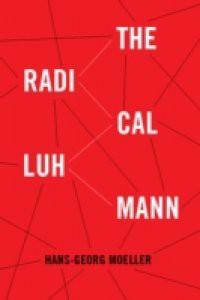In The Radical Luhmann, Hans-Georg Moeller focuses on Luhmann's paradigm shift from philosophy to theory, which introduced new perspectives on the contemporary world. Boldly breaking with the heritage of Western thought, Luhmann denied the central role of humans in social theory, particularly the possibility of autonomous agency. In this way, after Copernicus's cosmological, Darwin's biological, and Freud's psychological deconstructions of anthropocentrism, he added a sociological "fourth insult" to human vanity. A theoretical shift toward complex system-environment relations helped Luhmann "accidentally" solve one of Western philosophy's primary problems: mind-body dualism. By pulling communication into the mix, Luhmann finally rendered the Platonic dualist heritage obsolete. Moeller's clear presentation opens these formulations to a wide audience and directly relates Luhmannian theory to contemporary issues in democracy, art, education, justice, human rights, and mass media.

